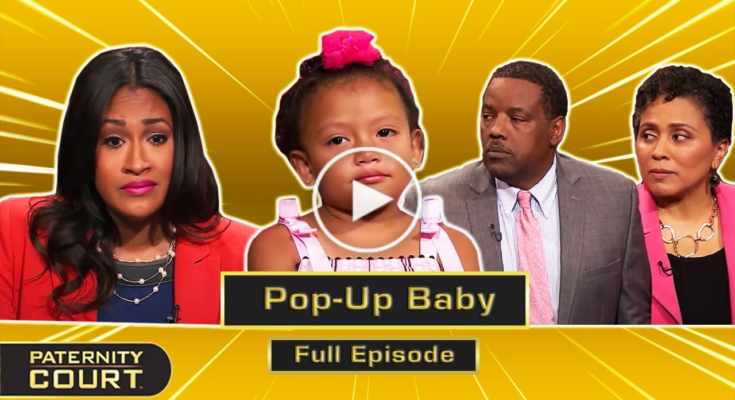The courtroom is filled with tension as Judge Lake opens the case of Wilson v. Kelly . The story that unfolds is a poignant exploration of the emotional turmoil, longing for closure, and the transformative potential of genetic testing in the context of paternity uncertainty.
The heart of this case lies in the gripping accounts of Ms. Wilson’s struggles. Her voice trembles as she shares her experience of being perceived as a liar due to lingering doubts about her daughter Zoe’s paternity. Amidst tearful admissions, it becomes evident that the weight of uncertainty has cast a shadow over Ms. Wilson’s maternal claim. This serves as a powerful reminder of the profound impact of paternity doubt on one’s self-esteem and identity.
Ms. Wilson’s narrative becomes more intricate as she reveals her intimate relationships with both Garrett Kelly and another man within a short timeframe. The court acknowledges the complexities of human relationships, recognizing that intimacy with multiple partners within a narrow window can muddle paternity claims. The nuances of these relationships underscore the intricate web of emotions and biology that shape paternity disputes.
The courtroom atmosphere becomes palpably emotional as the Kellys, Garrett’s parents, express their yearning for closure. Their anguish is tangible, reflecting the recurrent pain of unresolved paternity doubts that has remained intertwined with the memory of their departed son. Their longing underscores the profound psychological toll of living with unanswered questions, echoing the sentiments of many who yearn for clarity and solace in the face of paternity uncertainty.
The turning point in this narrative is the introduction of genetic testing, a beacon of hope amidst the shadows of doubt. Mr. Kelly’s unwavering commitment to Zoe’s well-being, regardless of her biological parentage, highlights the importance of clarity in matters of paternity. Ms. Wilson’s hope for acceptance and reconnection hinges on the potential for Zoe to resemble her late father, bridging the emotional gap between her and the Kelly family. Genetic testing emerges as a transformative force that can either validate or revise established familial ties.
The climax of this emotional odyssey arrives with the DNA test results. Despite the absence of direct DNA sampling from Garrett Kelly, a staggering 99.7% relatedness is established through his surviving parent, Mr. Kelly. This revelation becomes an emotional turning point, testifying to the potent role of genetic verification in offering the closure that the Kellys so ardently sought. As the truth of Zoe’s paternity is unveiled, the weight of uncertainty is lifted, affirming the importance of genetic testing as a path to clarity and resolution.
Wilson v. Kelly exemplifies the intersection of genetics and emotion, underscoring the power of genetic testing to redefine familial identity and mend strained relationships. As the courtroom erupts with tears of relief and joy, the emotional resonance of the DNA results reverberates. The validation of Zoe’s connection to the Kelly family encapsulates the narrative’s core theme: the delicate interplay between genetics and sentiment in shaping the contours of family bonds.
In a world where paternity uncertainty can inflict emotional turmoil, genetic testing emerges as a powerful tool that can unravel the tangles of doubt and offer the gift of closure. Wilson v. Kelly encapsulates the complexities of human relationships, the longing for clarity, and the transformative potential of genetic validation. Through the narratives of Ms. Wilson, the Kellys, and the significance of the DNA test results, this story underscores the intricate dance between genetics and emotions. In a symphony of pain, healing, and reconnection, the tale illustrates how the threads of biology and sentiment intertwine to weave the intricate tapestry of family bonds.



